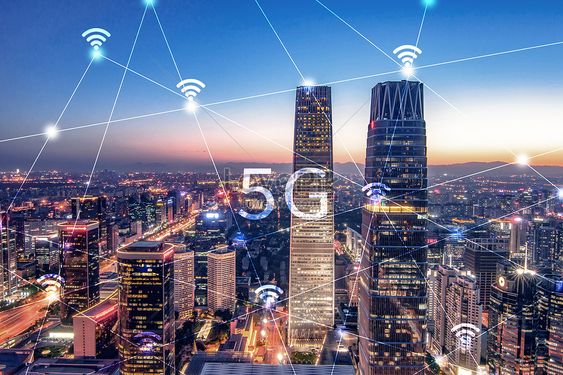5G technology refers to the fifth generation of mobile networks and telecommunications standards that promise significantly faster data speeds, lower latency, and the ability to connect a massive number of devices simultaneously. It represents a leap forward in wireless technology designed to meet the increasing demand for mobile broadband services and support emerging applications like Internet of Things (IoT), augmented reality (AR), and autonomous vehicles.
Significance in the Telecommunications Industry:
- Enhanced Speed and Capacity: 5G networks are expected to deliver peak data rates up to 10 Gbps, offering ultra-fast speeds that enable quicker downloads, smoother streaming, and improved user experiences.
- Low Latency: With latency reduced to as low as 1 millisecond, 5G enhances responsiveness, making real-time applications such as gaming, video conferencing, and remote surgery feasible.
- Massive IoT Connectivity: 5G networks can support a significantly larger number of connected devices per unit area (up to 1 million devices per square kilometer), facilitating the growth of IoT applications across industries.
- Industry Transformation: The deployment of 5G is expected to spur innovation and drive economic growth by enabling new services and business models in sectors such as healthcare, transportation, manufacturing, and entertainment.
Overview of Telecommunications Infrastructure in Africa
Existing Infrastructure: Africa’s telecommunications infrastructure varies significantly across different regions. Generally, urban areas and major cities have relatively well-developed infrastructure compared to rural and remote areas. Key components of the telecommunications infrastructure include:
- Mobile Networks: Mobile telephony has seen extensive growth across Africa, with many countries achieving high mobile penetration rates. Networks primarily operate on 2G, 3G, and increasingly on 4G LTE technologies.
- Fixed-Line Networks: Traditional fixed-line telephone networks are less developed and often limited to urban centers. However, there has been a shift towards expanding fiber-optic networks in some regions.
- Internet Connectivity: Internet penetration rates vary widely, with urban areas having better access compared to rural areas. Access methods include fixed broadband (DSL, fiber) and mobile broadband (3G, 4G).
- Satellite Communications: In remote and underserved areas, satellite technology plays a crucial role in providing connectivity.
- Regulatory Environment: Each country in Africa has its own regulatory framework governing the telecommunications sector, impacting infrastructure development and service provision.
Challenges and Opportunities in Expanding Connectivity

- Infrastructure Gaps: Limited or outdated infrastructure in rural and underserved areas hinders connectivity expansion.
- Affordability: High costs of internet access and devices pose barriers to adoption, particularly for low-income populations.
- Digital Divide: Disparities in access between urban and rural areas exacerbate socioeconomic inequalities.
- Power Supply: Inconsistent electricity supply in some regions affects network reliability.
- Regulatory Barriers: Complex regulations and bureaucratic processes can delay infrastructure deployment and investment.
Opportunities:
- Mobile Penetration: High mobile penetration rates present opportunities to leverage mobile networks for expanding internet access.
- Fiber Optic Expansion: Investments in fiber-optic networks are expanding, improving broadband speeds and reliability in urban areas.
- Satellite Technology: Advances in satellite technology offer solutions for connecting remote and rural areas.
- Public-Private Partnerships: Collaboration between governments, telecom operators, and international organizations can accelerate infrastructure development.
- Digital Innovation: Increasing demand for digital services and applications presents opportunities for service diversification and revenue growth.
As of 2023, the deployment of 5G technology across Africa varies widely among countries. While some nations have made significant progress in launching 5G networks, others are still in the planning or early testing stages. Below is an overview of the status in different African countries:
South Africa:
- Status: South Africa is leading 5G deployment in Africa, with several major cities having operational 5G networks.
- Key Players: MTN South Africa, Vodacom, and Rain are key players involved in 5G rollout.
Kenya:
- Status: Limited commercial 5G services have been launched in Nairobi and other urban areas.
- Key Players: Safaricom and Airtel Kenya are among the early adopters of 5G technology.
Nigeria:
- Status: Testing and trials of 5G technology are ongoing, with plans for wider deployment in major cities.
- Key Players: MTN Nigeria and Airtel Nigeria are actively involved in 5G trials and infrastructure development.
Egypt:
- Status: 5G trials have been conducted, and commercial deployment is expected to begin in select areas.
- Key Players: Telecom Egypt and Vodafone Egypt are preparing for the rollout of 5G services.
Morocco:
- Status: 5G trials and demonstrations have taken place, with plans for commercial deployment in the near future.
- Key Players: Maroc Telecom and Orange Morocco are leading initiatives in 5G technology.
Ghana:
- Status: Initial testing of 5G technology has been conducted, paving the way for future deployment.
- Key Players: MTN Ghana and Vodafone Ghana are exploring opportunities for 5G rollout.
Tunisia:
- Status: Tunisia has conducted trials and is preparing for the commercial launch of 5G networks.
- Key Players: Tunisie Telecom and Orange Tunisia are key players in the country’s 5G initiatives.
Early Adopters and Key Players in the Telecommunications Sector
- MTN Group: MTN has been at the forefront of 5G deployment in several African countries, leveraging its extensive network infrastructure and partnerships.
- Vodacom Group: Vodacom, a subsidiary of Vodafone, has been actively involved in testing and launching 5G services in markets such as South Africa and Tanzania.
- Safaricom: Kenya’s leading telecom operator, Safaricom, has initiated trials and is preparing for wider 5G deployment to enhance its service offerings.
- Airtel Africa: Airtel Africa has been exploring opportunities for 5G deployment across its operations in various African countries, focusing on enhancing network capabilities.
- Telecom Egypt: Telecom Egypt is leading efforts in Egypt’s 5G rollout, aiming to capitalize on the potential of next-generation connectivity for businesses and consumers.
Future of 5G Technology in Africa: Insights and Predictions
Accelerated Deployment:
- Over the next decade, we can expect accelerated deployment of 5G networks across major urban centers in Africa. Countries like South Africa, Kenya, Nigeria, and Egypt are likely to lead the way, expanding coverage and improving network capabilities.
Bridging the Digital Divide:
- 5G technology has the potential to bridge the digital divide between urban and rural areas in Africa. Innovative deployment strategies, including partnerships with satellite providers and mobile operators, could extend high-speed connectivity to underserved regions.
Impact on Industries:
- Various industries in Africa, such as healthcare, agriculture, education, and manufacturing, are poised to benefit significantly from 5G technology. Applications like remote healthcare services, smart farming, e-learning platforms, and automated manufacturing processes will see increased efficiency and productivity.
IoT and Smart Cities:
- The proliferation of Internet of Things (IoT) devices and sensors will be catalyzed by 5G networks, enabling the development of smart cities and communities. This includes enhanced infrastructure management, efficient energy usage, and improved public services.
Economic Growth and Job Creation:
- The deployment of 5G technology is expected to stimulate economic growth in Africa by fostering innovation and entrepreneurship. New business models and digital services will emerge, creating job opportunities and attracting investments in the telecommunications sector.
Enhanced User Experience:
- Consumers and businesses alike will experience a significant improvement in network speeds, lower latency, and reliability with 5G. This will drive the adoption of bandwidth-intensive applications such as ultra-high-definition video streaming, augmented reality (AR), and virtual reality (VR).
Regulatory Framework and Policies:
- Governments in Africa will need to adapt regulatory frameworks and policies to support the deployment and operation of 5G networks. This includes spectrum allocation, cybersecurity measures, and ensuring fair competition among telecom operators.
Challenges to Address:
- Challenges such as infrastructure limitations in rural areas, affordability of 5G services, and cybersecurity concerns will need to be addressed to maximize the benefits of 5G technology across Africa.
The future of 5G technology in Africa holds tremendous promise for transforming economies, improving living standards, and driving innovation. With strategic investments, collaborative partnerships, and forward-thinking policies, Africa is poised to harness the full potential of 5G to leapfrog into a digital future. The next decade will likely witness unprecedented advancements in telecommunications, paving the way for a more connected and prosperous continent.




